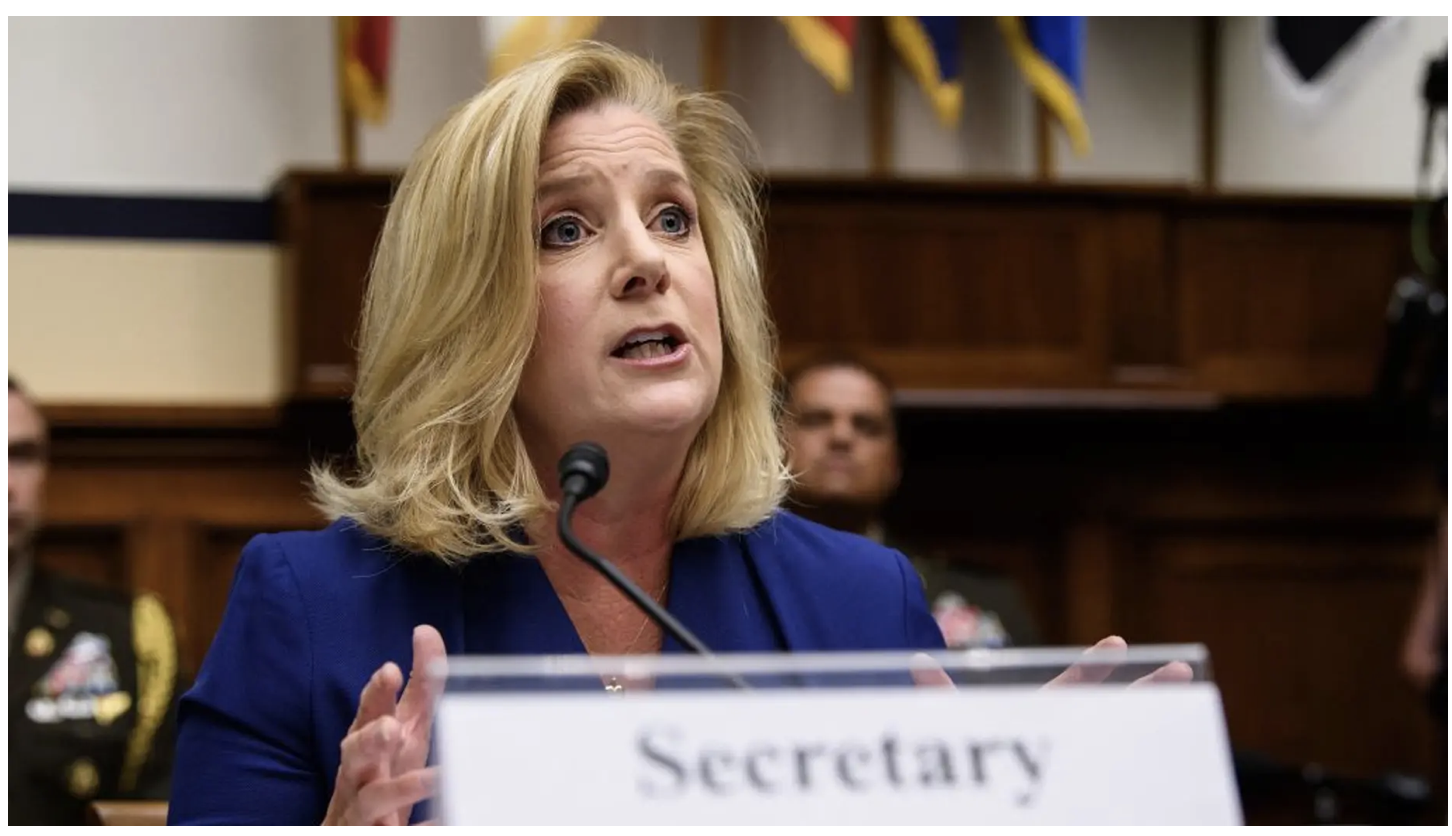Our Armed Forces, ready, or not
/the Ukrainians certainly aren’t ready: that thing’s running on diesel!
While Joe’s handlers get us ready for a European adventure that they hope will divert the hoi polloi from fretting about irrelevant domestic matters, our military leaders went all out this week to assure the nation that they’re set to go, prepared to deter all enemies by a show of exceptional social awareness, and if deterrence fails, they’ll be fielding a fearsome, but gentle, array of social warriors.
U.S. Secretary of the Army Christine Wormuth explains why propeller beanies are being issued to the troops
Army goes green, announces new climate strategy
"Climate change threatens America’s security and is altering the geostrategic landscape as we know it," Army Secretary Christine Wormuth [never served] said in a message included in the strategy. "For today’s soldiers operating in extreme temperature environments, fighting wildfires and supporting hurricane recovery, climate change isn’t a distant future, it is a reality."
Insisting that the "time to address climate change is now," Wormuth said the Army will "lead by example" as it works to address the effects from climate change that have "taken a toll on supply chains, damaged our infrastructure and increased risks to Army soldiers and families due to natural disasters and extreme weather."
"The Army must adapt across our entire enterprise and purposefully pursue greenhouse gas mitigation strategies to reduce climate risks," Wormuth added. "If we do not take action now, across our installations, acquisition and logistics and training, our options to mitigate these risks will become more constrained with each passing year."
And on Thursday, the Department of Defense weighed in on what is really necessary, in addition to battery-powered jeeps and windmills atop submarines, for our modern American military to meet the challenges of modern times:
Others beg to differ, like this retired Marine General:
Forget critical race theory, we need critical military theory
In an op-ed for Task & Purpose, Lt. General Gregory Newbold (Ret.) laid out how the ideals of wokeness pushed by the Left do not help the U.S. military's main mission of being a lethal warfighting organization that must be ready at all times to kill the nation's enemies.
Newbold warned how many Americans and senior military leaders have formed a "dementia when it comes to warfare":
"The result is confusion or denial about the essential ingredients of a competent military force, and the costs of major power conflict. The memory loss is largely irrespective of political bent because all too many are seduced by a Hollywood infused sense of antiseptic warfare and push-button solutions, while forgotten are the one million casualties of the Battle of the Somme in World War I, or the almost two million in the Battle of Stalingrad in World War II. This 'warfare dementia' is a dangerous and potentially catastrophic malady, because the price for it could alter the success of the American experiment and most assuredly will be paid in blood."
Instead of pushing for Critical Race Theory in the military, Newbold said the armed forces must get back to the basics of Critical Military Theory:
1. The U.S. military has two main purposes — to deter our enemies from engaging us in warfare, and if that fails, to defeat them in combat. Deterrence is only possible if the opposing force believes it will be defeated. Respect is not good enough; fear and certainty are required.
2. To be true to its purpose, the U.S. military cannot be a mirror image of the society it serves. Values that are admirable in civilian society — sensitivity, individuality, compassion, and tolerance for the less capable — are often antithetical to the traits that deter a potential enemy and win the wars that must be fought: Conformity, discipline, unity.
Direct ground combat, of the type we must be prepared to fight, is only waged competently when actions are instinctive, almost irrationally disciplined, and wholly sacrificial when required. Consensus building, deference, and (frankly) softness have their place in polite society, but nothing about intense ground combat is polite — it is often sub-humanly coarse.
3. There is only one overriding standard for military capability: lethality. Those officeholders who dilute this core truth with civil society’s often appropriate priorities (diversity, gender focus, etc.) undermine the military’s chances of success in combat. Reduced chances for success mean more casualties, which makes defeat more likely. Combat is the harshest meritocracy that exists, and nothing but ruthless adherence to this principle contributes to deterrence and combat effectiveness.
Newbold, whose last assignment was director of operations for the Joint Staff, said senior military and political leadership have lost sight of these and other crucial tents of Critical Military Theory by shifting a change in priorities and standards:
"We signal a dangerous shift in priorities (as just one example) when global warming, not preparedness to defeat aggressive global competitors, is considered the greatest problem for the Department of Defense and headquarters and rank inflation blossom out of control to the point that the support element greatly diminishes the ground combat element that wins wars."




